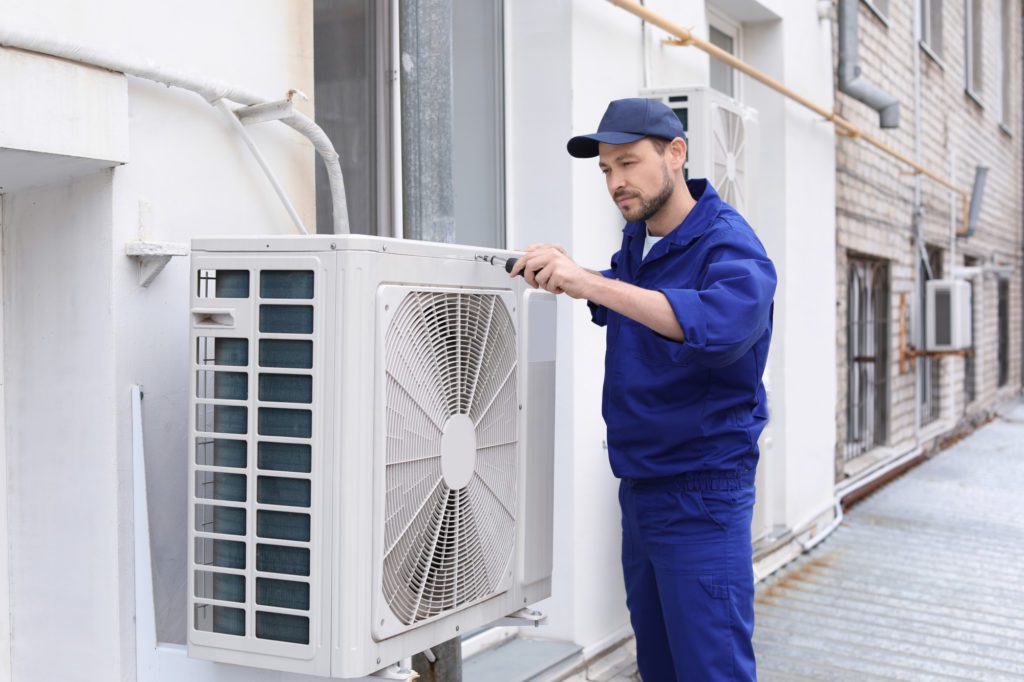
Common HVAC Myths Debunked: What Homeowners Should Know
When it comes to HVAC systems, there’s no shortage of myths and misconceptions that can lead homeowners astray. Misinformation can result in poor maintenance decisions, decreased system efficiency, and unnecessary costs. In this blog, we debunk some of the most common HVAC myths, providing homeowners with the accurate information they need to make informed decisions about their heating and cooling systems.
Myth 1: Bigger HVAC Units Are Always Better
One of the prevalent myths in home heating and cooling is the belief that the bigger the HVAC unit, the better it will perform. This misconception can lead to homeowners choosing oversized units for their homes, resulting in a range of inefficiencies and problems.
The Reality: The idea that bigger is always better is a common misconception in the HVAC world. In reality, an oversized unit can lead to inefficiency, increased wear and tear, and uneven temperature control. The key is to have a system that is properly sized for your space, ensuring optimal performance and energy efficiency.
Origins of the Misconception
The root of this myth often lies in a basic misunderstanding of how HVAC systems work. The logic seems straightforward – a larger unit should cool or heat a space more quickly than a smaller one. Homeowners may also assume that a bigger unit will be more powerful and, therefore, more effective in maintaining comfortable temperatures.
The Reality: Why Bigger Isn’t Always Better
The efficiency of an HVAC unit is not solely dependent on its size but rather on how well it’s matched to the specific needs of the space it serves. Here’s why an oversized HVAC unit is not the optimal choice:
- Short Cycling: Oversized units tend to heat or cool spaces too quickly and shut off, a process known as short cycling. While this might sound efficient, it actually isn’t. Short cycling prevents the system from running long enough to evenly distribute air throughout the home, leading to uneven temperatures and discomfort.
- Increased Wear and Tear: Because an oversized unit cycles on and off more frequently, it undergoes more wear and tear than a properly sized unit. This can lead to more frequent repairs and a shorter lifespan for the unit.
- Humidity Issues: In the case of air conditioners, part of the unit’s job is to remove humidity from the air. Short cycling means the unit doesn’t run long enough to effectively remove moisture, leading to a clammy feeling in the air and potential moisture-related issues in the home.
- Energy Inefficiency: Contrary to what one might think, an oversized HVAC unit can actually lead to higher energy bills. The constant cycling on and off requires more energy, and the inability to run long enough to reach optimal efficiency levels means more energy is used for less comfort.
- Increased Costs: Not only do oversized units consume more energy, but they also tend to be more expensive upfront. This means homeowners may end up paying more for a system that offers less comfort and costs more to operate.
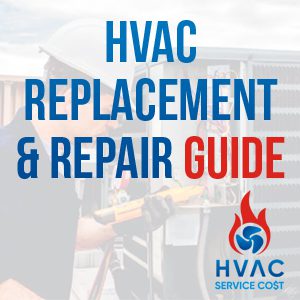
Correct Sizing: The Key to Efficiency
The most efficient HVAC system is one that’s correctly sized for the space it needs to serve. This involves calculating the heating and cooling load of the home, which considers factors like square footage, window size and orientation, insulation quality, and even local climate. HVAC professionals use these calculations to recommend the appropriately sized unit for a home.
Myth 2: Closing Vents in Unused Rooms Saves Energy
This common belief suggests that by closing vents in unused rooms, a homeowner can reduce energy usage and lower utility bills. While this might seem intuitively correct, the reality of how HVAC systems function tells a different story.
The Truth Unveiled: It may seem logical that closing vents in unused rooms would save energy, but this can actually strain your HVAC system. HVAC systems are designed to distribute air evenly throughout the home. Closing vents disrupts this balance, potentially leading to increased pressure, reduced efficiency, and even damage to the system.
Understanding HVAC Airflow Dynamics
HVAC systems are designed to distribute air evenly throughout a home. They operate on a balanced pressure system, meaning that the air pressure throughout the house should be equal. When vents in certain rooms are closed, this balance is disrupted. Here’s how:
- Increased Pressure in Ducts: Closing vents creates pressure buildup in the ductwork. Most residential HVAC systems are not designed to handle significant pressure changes. This increased pressure can lead to leaks in the ductwork where conditioned air escapes, reducing efficiency.
- Strain on the HVAC System: When air is blocked by closed vents, the HVAC system has to work harder to circulate air through the remaining open vents. This extra strain can reduce the lifespan of the system and result in more frequent repairs.
- Reduced Energy Efficiency: Contrary to saving energy, closing vents in unused rooms can actually lead to increased energy consumption. The HVAC system uses more energy to overcome the pressure imbalance, which can reflect in higher utility bills.
- Uneven Temperature Distribution: Closing vents can lead to uneven temperature distribution in the house. Some areas might become too hot or too cold, leading to discomfort and the need for the HVAC system to work harder to maintain consistent temperatures throughout the home.
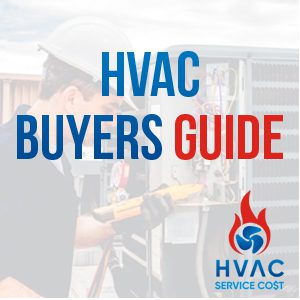
Better Alternatives for Energy Saving
For those looking to reduce energy costs, there are more effective strategies than closing vents:
- Zoned HVAC Systems: Installing a zoned HVAC system allows for different areas of the home to be heated or cooled independently, leading to more efficient energy use.
- Regular Maintenance: Ensuring your HVAC system is regularly maintained can improve its efficiency. This includes cleaning air filters, inspecting ductwork for leaks, and scheduling annual professional check-ups.
- Improving Home Insulation: Enhancing the insulation of your home, sealing windows and doors, and ensuring that attics and basements are properly insulated can significantly reduce energy usage.
- Using Programmable Thermostats: Programmable thermostats can adjust the temperature when you are not home or during the night, leading to energy savings without disrupting the balance of your HVAC system.
The myth that closing vents saves energy is based on a misunderstanding of how HVAC systems work. Rather than closing vents, homeowners should consider alternative methods to improve energy efficiency. Understanding the importance of maintaining a balanced HVAC system can lead to better decisions that enhance comfort and efficiency while potentially reducing costs in the long run.
Myth 3: Routine Maintenance Isn’t Necessary
The misconception that routine maintenance of HVAC systems is not essential is a common pitfall for many homeowners. Some believe that as long as their HVAC system is running, it doesn’t require any maintenance. However, regular maintenance is fundamental to the longevity and efficiency of any HVAC system.
Debunking the Myth: Some homeowners believe that if their HVAC system is running, it doesn’t need maintenance. However, regular maintenance is crucial for keeping the system running efficiently and preventing costly repairs. Annual check-ups by a professional can extend the life of your unit and ensure it operates at peak efficiency.
The Critical Role of Regular Maintenance
- Preventing Costly Repairs: Routine maintenance helps in identifying and addressing minor issues before they escalate into major problems. By catching issues early, you can avoid expensive repairs down the line.
- Extending System Lifespan: Regular maintenance can significantly extend the life of your HVAC system. Systems that are well-maintained can last several years longer than neglected ones, providing better value for your investment.
- Ensuring Efficiency: Over time, HVAC systems can lose efficiency due to wear and tear. Maintenance tasks such as cleaning air filters, checking refrigerant levels, and ensuring that all components are functioning correctly help the system to operate at peak efficiency. This efficiency translates to lower energy bills and better performance.
- Improving Air Quality: The maintenance of HVAC systems also impacts the air quality within your home. Dirty filters or ducts can circulate dust, allergens, and other pollutants, which can be detrimental to health. Regular cleaning and replacing of filters ensure cleaner, healthier air circulation.
- Compliance with Warranty Requirements: Many HVAC systems come with warranties that require regular maintenance. Failure to adhere to these requirements can void the warranty, leaving you without coverage for any future repairs.
Misunderstanding the Importance of Maintenance
The myth that maintenance isn’t necessary often stems from a lack of understanding of how HVAC systems work and the consequences of neglect. Some homeowners might not realize the gradual decline in system performance or the increased risk of failures associated with lack of maintenance.
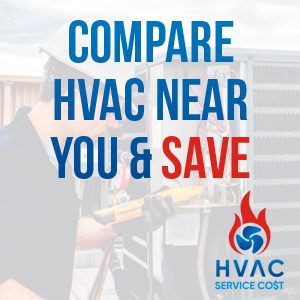
Recommended Maintenance Practices
To keep your HVAC system running smoothly, it’s recommended to:
- Schedule Regular Professional Check-ups: Having a professional technician service your HVAC system annually is crucial. They can perform comprehensive checks and address any issues.
- Perform Regular Self-Maintenance: Simple tasks like regularly changing air filters, keeping the area around outdoor units clear, and checking for any unusual noises or smells can be done by the homeowner.
- Be Proactive: If you notice something amiss with your HVAC system, don’t wait for the scheduled maintenance. Addressing issues promptly can save time and money.
Dismissing the importance of routine maintenance can lead to a host of problems for your HVAC system, including reduced efficiency, higher operating costs, and even premature system failure. Regular maintenance is an investment in the health and longevity of your HVAC system, ensuring it operates effectively for years to come.
Myth 4: The Only Purpose of Air Filters is to Improve Air Quality
A common misconception about HVAC systems is that the sole purpose of air filters is to enhance indoor air quality. While improving air quality is a significant function, it’s not the only reason air filters are crucial to your HVAC system.
Expanding the Understanding: While air filters do improve indoor air quality by trapping dust and allergens, their primary purpose is to protect the HVAC system from dust buildup. Regularly changing air filters is vital for maintaining airflow and system efficiency.
Dual Role of Air Filters in HVAC Systems
- Protecting the HVAC System: The primary purpose of air filters is to protect the HVAC equipment itself. They trap and hold various types of particulates and contaminants that can harm the internal components of the system, such as dust, dirt, and other debris. By preventing these particles from entering the system, air filters safeguard critical components like the evaporator coil and blower motor from damage and wear.
- Improving Air Quality: The secondary, yet equally important role of air filters is improving the indoor air quality. Filters capture pollutants and allergens present in the air, such as pollen, pet dander, and dust mites, thus providing cleaner, healthier air for the occupants of the space.
Misunderstanding the Function of Air Filters
Many people underappreciate the importance of air filters in the overall functionality of their HVAC system. This misconception may lead to neglecting regular filter changes or using filters that are inadequate for their system’s needs, both of which can have adverse effects on the system’s efficiency and the indoor air quality.
Consequences of Neglecting Air Filter Maintenance
- Reduced System Efficiency: Clogged or dirty air filters restrict airflow, forcing the HVAC system to work harder. This not only decreases system efficiency but can also lead to increased energy consumption and higher utility bills.
- Potential System Damage: Over time, filters that are not regularly changed can cause significant strain on the HVAC system, potentially leading to overheating, breakdowns, and costly repairs.
- Compromised Air Quality: Neglecting air filter maintenance can lead to a decline in indoor air quality, which can be particularly problematic for individuals with allergies, asthma, or other respiratory issues.
Best Practices for Air Filter Maintenance
To ensure the optimal functioning of your HVAC system and maintain good air quality, consider the following:
- Regular Replacement: Check and replace your air filters regularly, typically every 30 to 90 days, depending on usage and environmental factors.
- Choosing the Right Filter: Use the correct type and size of filter for your specific HVAC system. Higher MERV-rated filters can capture more and smaller particles, but they also restrict airflow more than lower-rated filters.
- Professional Advice: If unsure about the best type of filter for your system or how often to change it, consult with an HVAC professional for guidance tailored to your specific situation.
Air filters play a dual role in HVAC systems, contributing to both the protection of the system and the improvement of indoor air quality. Understanding the full scope of their function is crucial for proper HVAC maintenance. Regularly changing air filters and choosing the appropriate type for your system are simple yet effective ways to ensure your HVAC system operates efficiently and provides a healthier indoor environment.
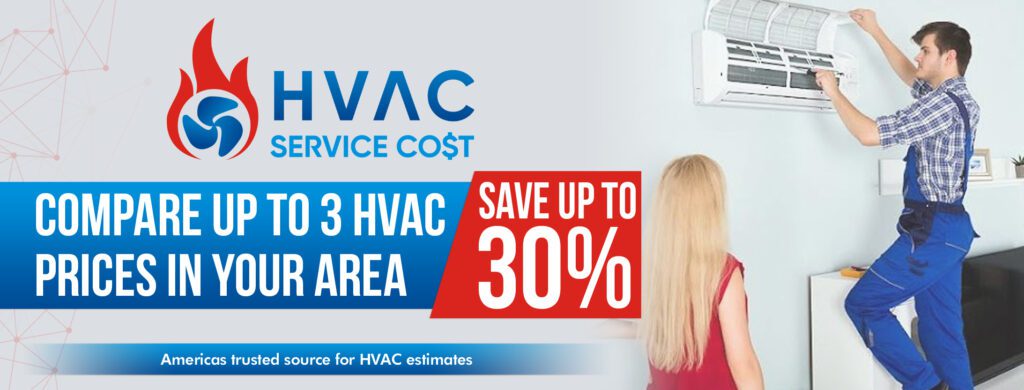
Myth 5: Turning Off the HVAC System When Not Home Saves Energy
Many homeowners believe that turning off their HVAC system when they leave the house is a surefire way to save on energy costs. However, this common belief doesn’t always hold true and can sometimes lead to the opposite effect.
Analyzing the Reality: Turning off the HVAC system completely when leaving the house can end up using more energy. The system will have to work harder to return to the desired temperature once it’s turned back on. A better approach is to use a programmable thermostat to adjust the temperature when you’re not home.
Understanding HVAC Energy Consumption
- The Strain of Reactivating: Completely shutting down the HVAC system can be counterproductive, especially in extreme weather conditions. When the system is turned off, indoor temperatures can drift significantly away from the desired comfort level. Once the system is turned back on, it must work harder and consume more energy to bring the temperature back to a comfortable level, which can be particularly taxing during very hot or cold days.
- Increased Humidity and Mold Risk: In hot and humid climates, turning off the HVAC system can lead to increased indoor humidity levels. This not only affects comfort but can also encourage mold growth and other moisture-related issues within the home.
- Inconsistent Temperatures and Wear on the System: Frequent turning on and off of the HVAC system can cause inconsistent indoor temperatures and put additional strain on the system’s components, potentially reducing its lifespan.
Energy-Efficient Alternatives
Rather than completely turning off the HVAC system, homeowners have better options for saving energy:
- Programmable Thermostats: Modern programmable thermostats allow homeowners to set schedules that adjust the temperature when the house is unoccupied. For example, setting the thermostat to maintain a slightly higher temperature in summer (or lower in winter) when no one is home can save energy without the strain of completely turning the system on and off.
- Smart Thermostats: These devices take energy savings a step further by learning your schedule and preferences. They can automatically adjust settings for optimal energy use without compromising on comfort when you return home.
- Zoned Heating and Cooling: For homes with zoned systems, it’s possible to control the temperature in different areas independently. This means you can reduce heating or cooling in parts of the home that are not in use without turning off the system entirely.
The Importance of Consistent HVAC Operation
Consistent operation of the HVAC system at a more moderate and stable setting is generally more energy-efficient than turning it off completely. This approach ensures that the system operates within its optimal efficiency range and reduces the likelihood of excessive wear and tear.

Myth 6: HVAC Systems Only Need Attention When There’s a Problem
A prevalent myth among many homeowners is that HVAC systems only require attention or maintenance when a problem arises, such as a noticeable malfunction or complete breakdown. This reactive approach, however, overlooks the importance of regular maintenance and can lead to several long-term issues.
Why Proactive Care is Key: Waiting for a problem to arise before addressing HVAC maintenance can lead to more significant issues and higher HVAC repair costs. Proactive maintenance helps identify and resolve potential problems before they become serious, saving money and extending the life of the system.
Proactive vs. Reactive HVAC Maintenance
- Preventative Care: Regular maintenance of an HVAC system is akin to regular health check-ups. Just as preventative health check-ups can identify and mitigate health issues before they become serious, regular HVAC maintenance can identify and address minor issues before they escalate into major problems.
- Cost Savings: Contrary to the belief that waiting until there’s a problem saves money, regular maintenance can actually be more cost-effective in the long run. Addressing small issues periodically prevents more significant, expensive repairs later on. Moreover, a well-maintained HVAC system operates more efficiently, which can save money on energy bills.
- System Longevity: Regular maintenance extends the lifespan of an HVAC system. Systems that are neglected until problems occur tend to have a shorter lifespan compared to those receiving consistent care.
The Risks of Neglecting HVAC Maintenance
Ignoring an HVAC system until a problem manifests can result in:
- Sudden Breakdowns: Without regular check-ups, systems are more prone to unexpected failures, which can be particularly inconvenient during extreme weather conditions.
- Decreased Efficiency: HVAC systems that aren’t regularly maintained may gradually lose their efficiency. This decline can lead to higher energy usage and increased utility bills.
- Poor Air Quality: HVAC maintenance also involves checking and replacing air filters and cleaning ducts. Neglecting these aspects can lead to poorer indoor air quality, which may affect health, particularly for those with allergies or respiratory issues.
- Voided Warranty: Many HVAC systems come with a manufacturer’s warranty that requires regular maintenance. Failure to adhere to these requirements can void the warranty.
Understanding the realities of HVAC systems is essential for efficient operation and maintenance. By debunking these common myths, homeowners can take better care of their systems, leading to improved performance, longer lifespans, and reduced costs. Remember, when in doubt, it’s always best to consult with a professional HVAC technician who can provide accurate advice and service tailored to your specific needs. HVAC Service Cost has you covered with free and reliable HVAC quotes for any of your HVAC service or system needs.
COMPARE QUOTES NOW


Leave a Reply